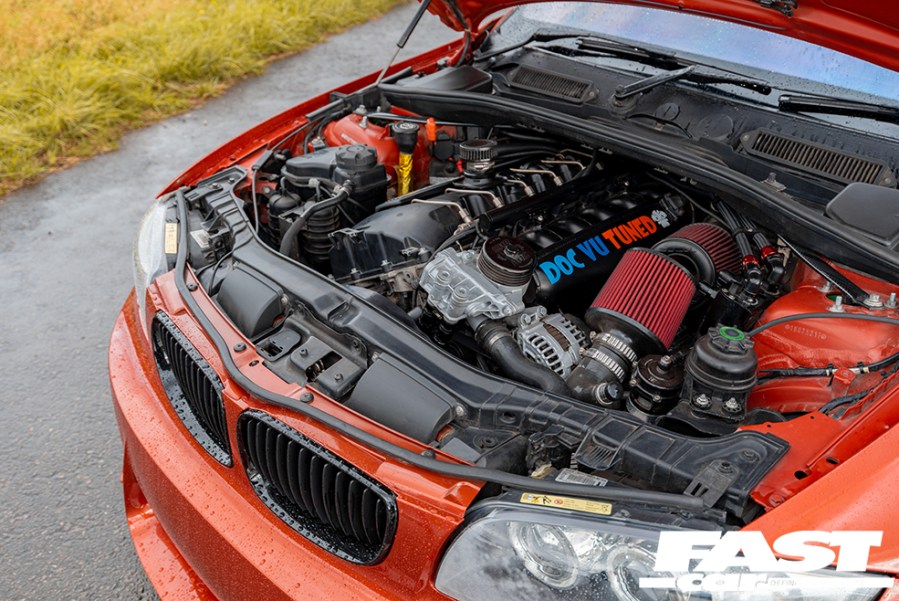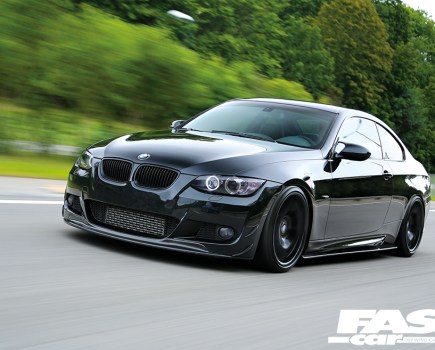With impressive turbo power and virtually limitless tuning potential, the N54 and N55 are modern-day performance legends; here’s our BMW N54 and N55 engine guide as we delve beneath the surface to see what these turbo powerhouses are all about.
There are some engines that have become legendary in the car tuning scene. The first two that always come to mind are the RB26DETT from Nissan and the 2JZ-GTE from Toyota. Both have huge potential when modified, and are famous for their ruggedness. Power levels of over 1000bhp, even 2000bhp, are possible with the right modifications and a big enough budget. But, there’s another six-cylinder engine out there which, with the right modifications, can produce huge levels of performance, too. And, no, they don’t come at the same premium price point as the legendary JDM cars for which the engines mentioned above power. We’re talking about BMW’s original turbocharged straight-six engine, the N54 and the N55 engines. Both are former Engine of the Year winners and both love boost.
Below, we’ll dive into the BMW N54 and N55 history as well as advise on the best modifications you can make to them to achieve improved performance.
BMW N54 N55 History
The N54 engine first appeared in the 2006 E92 335i. The twin-turbo straight-six arrived with 306hp and 295lb ft of torque. This is the version that the majority of N54-powered cars have; the F01 740i and US-only E92/3 335is came equipped with a 326hp version; this also received 332lb ft of torque. The most powerful version of the engine was found in the E82 1M Coupé and E89 Z4 sDrive35is; it made 340hp here, with an overboost function that gave it 369lb ft for five seconds at full throttle.
The N55 arrived in 2009 and went from two turbos to a single, twin scroll item. Both its power and torque figures were unchanged from the N54 in many guises, but peak torque arrived 100rpm earlier. Unlike the N54, there were numerous different incarnations of the N55 as BMW fitted it to just about every model it could. The F-range 640i, US-only E82/8 135is, F20/1 M135i and F01 740i all received the 320hp version with 332lb ft; the F22/3 M235i and LCI M135i both got the 326hp version; while the F30 ActiveHybrid 3 had the 340hp N55. Finally, the F26 X4 M40i came with a 360hp version that also got 343lb ft. The F87 M2 came with the most powerful version of the engine, with 370hp and 369lb ft of torque.
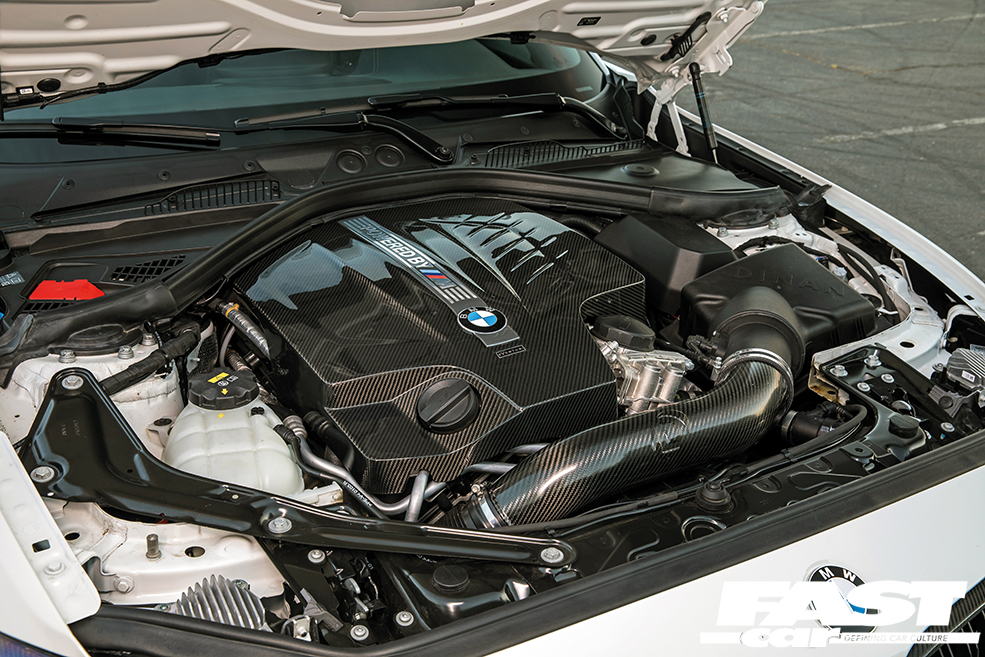
BMW N54 & N55 technical specs
The BMW N54 & N55 share their internal dimensions with the engine they’re based on, the M54. This means that they have an identical bore and stroke (84×89.6mm); even the compression ratio is the same at 10.2:1, which helps to explain why it feels like a normally aspirated engine in the way it drives as it’s not a low-compression motor. However, there are several big differences; the M54 is a closed-deck single-piece block whereas the N54 is an open deck design and consists of two pieces. The water pump is also electric on the N54. On the M54 it’s cast into the front of the block. As well as this, the M54 uses a more traditional fuel injection method, whereas the N54 features direct injection.
The N54 uses two smaller turbos running at 8.8 psi in order to keep lag to a minimum. The N55 uses one larger one, which features a twin-scroll compressor housing. This means that the exhaust side of the turbo is divided into two parts, each fed by three exhaust primaries. In addition to this, the N55 also comes equipped with Valvetronic variable valve lift technology. This improved throttle response and low-end torque as well as reducing fuel consumption by 15% and lowering emissions over the N54.
The N55 also switched from the N54’s more expensive Piezo fuel injectors to solenoid-type ones. The former was deemed not worthwhile using any longer as markets outside of Europe could not benefit from their potential lean-burn benefits.
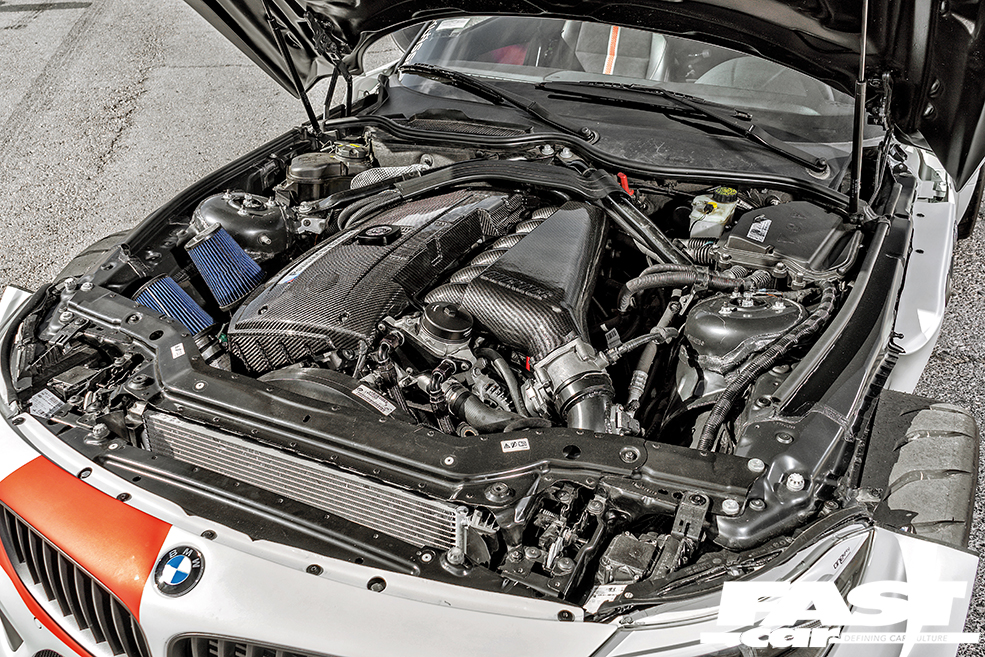
N54 N55 tuning potential
Remap
While the N54 and N55 are impressive performers in stock form, it’s when you start tuning them that their true performance potential is realized. While both engines give good gains, the N54 will always make slightly more power. This is simply because it has two turbos and that means it’s easier for it to generate more power. The good news is that you don’t need to spend a lot of money. You also don’t need any complicated mods to see good gains on both engines; we’re going to be using the base version of each engine for reference.
Your first port of call will be either a remap or a tuning box; there are plenty of options for both and they’ll both result in similar gains. A remap will get you an increase of around 60hp and 80lb ft; while a tuning box like a JB4 or bootmod3 will get you up to 80hp. With a lot of tuning boxes being incredibly easy to install there’s really very little effort involved in getting a substantial hike in power. At around £450 / $400 it’s a very cost-effective performance mod.
Breathing mods
On naturally aspirated engines intakes don’t generally offer much in the way of gains. However, on a turbocharged car they’re always worth a look. While an intake won’t do a whole lot on its own (apart from more induction noise), once you start throwing more mods at your N54 or N55, it all adds up. There are loads on the market to choose from but the BMS one gets good reviews.
The charge pipe (the pipe from the intercooler to the intake manifold) on both engines is flimsy. It can fail even at stock boost pressure, so once you start upping the power, an uprated one is an absolute must. For the N54 we’d look at the Rennessis pipe from SSDD, which comes complete with an uprated blow-off valve. The VRSF item ($150) for your N55 isn’t a bad option either. An upgraded blow-off valve is an important addition because once boost pressure increases the stock ones can leak; the N54 uses manifold absolute pressure (MAP) so is quite happy with either a recirculating or an atmospheric blow-off valve. The N55 uses a MAF sensor and so it’s best to stick with a recirculating one.
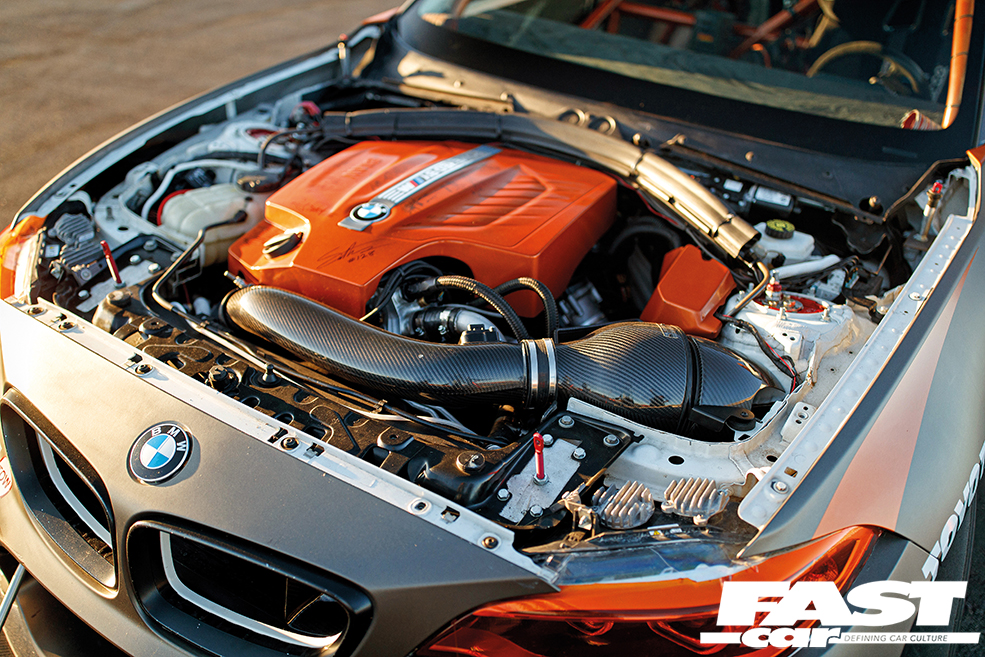
Exhaust
The most restrictive point of both the N54 and N55 exhaust systems is the downpipe. On the N54 you have one of these from each turbo. On the N55 there is just one and it’s the cat in each of these pipes that causes the restriction and a massive increase in back-pressure. Fit a de-cat downpipe and you instantly gain power, torque and improved throttle response. You’ll also get more noise! As a result, they’re an absolute win all-round and you can expect to pay around £400 / $300.
The rest of the exhaust is fine and any changes won’t really make a difference to power. However, they will give you an awesome straight-six soundtrack to enjoy, so we’d throw one on for that reason alone. We’d also look at adding an uprated intercooler to help keep intake temperatures down. This could potentially increase power; one from someone like Mishimoto will set you back about $600.
Chasing big power from your N54 or N55
At this point, you’ll have around 400hp+ on an N55 and 420hp+ on an N54, and for most people that’s going to be enough; it won’t have cost you a fortune to get to this point and your car will feel very quick indeed. Of course, there’s always more you can do and the next step would be a set of hybrid turbos with uprated internals. It’s about $2500-3000 for a pair of hybrids for the N54 or around half that for one for the N55 and that will get you well over 500hp, potentially even over 600hp, on an N54 and around 470hp+ on an N55.
You will need some additional supporting mods such as an even larger intercooler, uprated low-pressure fuel pump on the N54, and potentially even meth injection to help keep intake temperatures down and prevent detonation. If you still want more you need a big single-turbo setup and for that, you’ll need a manifold, which will set you back around $2500-3000 and then you need a turbo plus additional mods, so the costs will start to rack up but you can hit over 700hp.
Photos: Larry Chen, Daniel Pullen, Zayne Smith, Mike Kuhn, Viktor Benyi.

